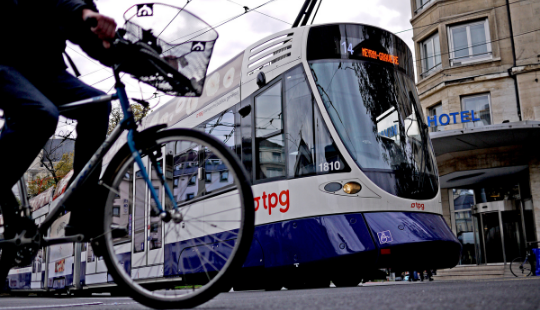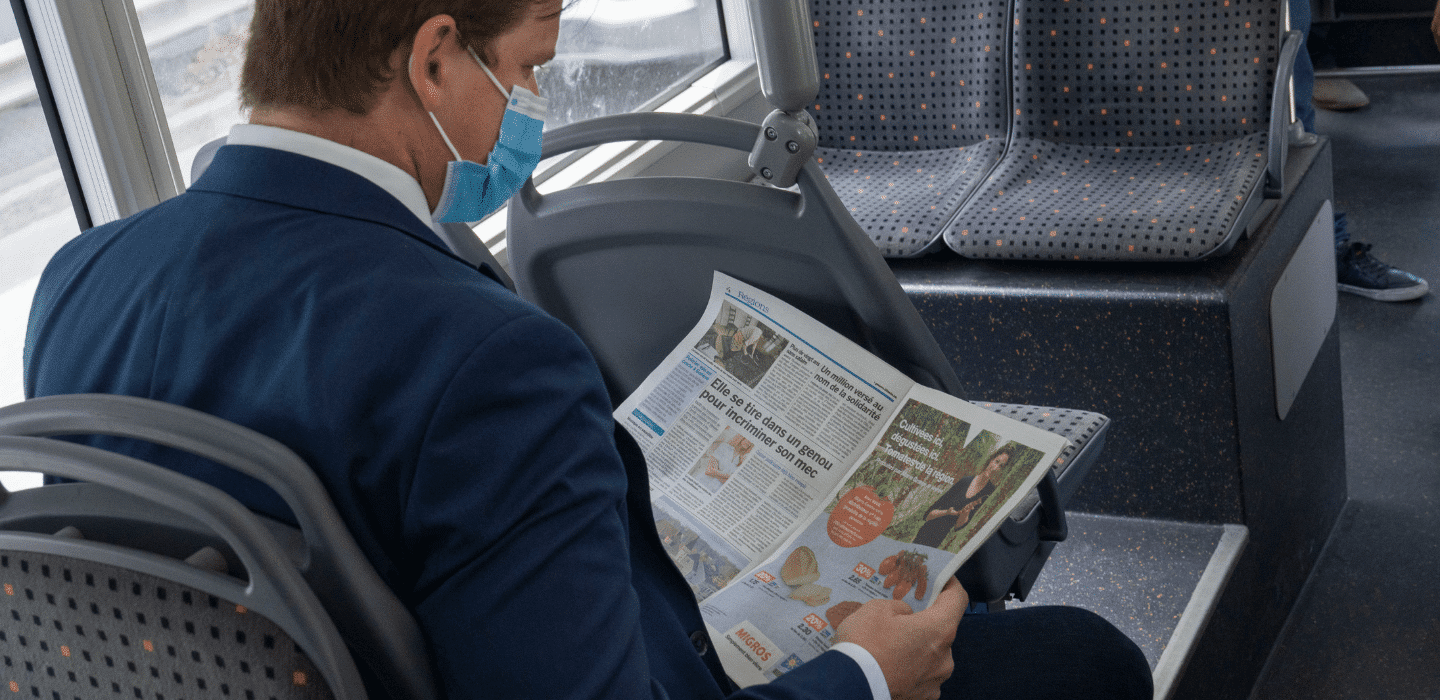Car, public transport or bicycle ? What modes of transport should your employees use to get to the office ?
In Switzerland, mobility is one of the most greenhouse gas-emitting sectors. On average, each person travels 36.8 km per day, a quarter of which is part of their business trips, according to the Federal Statistical Office (FSO). The power of vehicles, which are getting bigger and bigger, added to the density of traffic affects the quality of life of the entire population: waste of time in traffic jams, stress, pollution, noise pollution, parking difficulties. Is it inevitable ? Fortunately not. And companies have a leading role to play in these mobility issues, encouraging their employees to use alternative modes of transport to get to the office. What forms of mobility should be favored and why ? Geneva public transport (tpg) offers you to sift through the advantages and disadvantages of each mode of transport.
The car : expensive, stressful and polluting
The car is one of the favorite means of transport for active people to get to work. Employees gladly praise the flexibility and range offered by the car and use it for more than half of their trips. The problem is that there is often only one person per car... Indeed, on these home-to-work journeys, 100 cars carry on average only 105 people. Few are willing to give up this privilege of going wherever you want, when you want, despite the poor record of the car in terms of air pollution, noise pollution and space occupancy. However, on closer inspection, the car does not just bring advantages for users:
- It is expensive. Beyond fuel costs, the use of the car includes purchase, insurance, maintenance, repairs, vignette, etc. For example, a general overhaul costs on average between CHF 600 and CHF 1,000 every 10,000 km. Adding up all these expenses, a car costs around CHF 10,000 per year, while a yearly travel pass costs only CHF 500.00/year in Geneva.
- It is a source of stress. Traffic jams make the time of arrival at work uncertain and generate frustration in the morning. Add to that the search for a downtown parking spot, and you get stressed employees before they've even started their workday.
If your employees are not yet ready or do not have the opportunity to abandon their car (family constraints, etc.), you can still encourage them to adopt more environmentally friendly alternatives, such as carpooling, or alternating use of different modes depending on the day.
Cycling and walking: environmentally friendly but rather for short distances
The last 15 years have seen the smashing return of the bicycle to Western cities. In some cities such as Copenhagen, bicycle traffic has even become more prevalent than car traffic. A boom made possible by the construction of dedicated infrastructures and the marketing of new types of bicycles (electrically assisted, self-service, etc.). In Switzerland, the share of cycling in travel remains modest and recent. However, it is an interesting alternative to the car for short trips! However, in Greater Geneva, half of the trips are less than 3 km. A distance that is easy to do by bike in 10 to 15 minutes, or on foot in 36 minutes.
The advantages of cycling do not stop there :
- The bike is faster than the car, in the city and during rush hour, for trips of less than 6 km.
- It is the cheapest means of transport, after walking.
- Pedaling and walking is good for your health. If it is recommended to walk at least 30 minutes a day, cycling to work can combine business with pleasure, practicing an activity that is beneficial to your health.

The only drawback of cycling is that it is less relevant for long journeys. But in this case, it becomes very interesting to combine cycling and public transport.
Public transport : reliable, ecological and practical
Did you know that 98% of Genevans live or work within 500 m of a tpg stop ? Thanks to a dense network operating 23/7, tpg is a more than interesting alternative to the car for your employees. In addition to helping to reduce car congestion and costing less, the use of public transport is beneficial for the productivity of your employees.
- Public transport is 28 times less polluting than the car alone. By encouraging your employees to get to the office by public transport, you are helping to make Geneva cleaner and more breathable!
- Public transport is 21 times cheaper than an individual vehicle. A yearly public transport pass costs CHF 1.37/day compared to CHF 30/day for a car. In terms of mobility, it is much more economical to finance the public transport of your employees rather than to reimburse expense reports related to the use of their vehicle!
- Public transport makes your employees more peaceful and productive. Travel times are reliable, which reduces stress. In addition, taking public transport allows you to do something else with your time: read, organize your work day, check your professional e-mails, watch videos...
- Public transport reduces the risk of absenteeism. Less time spent behind the wheel massively reduces the risk of accidents.
If you want to manage your company in compliance with the principles of sustainable development and reduce the economic impact of the mobility of your teams, financing the public transport of your employees is a very advantageous solution ! To convince yourself, take a look at our mobility comparator and judge by yourself!
As a company, you can finance the public transport of your employees by allocating the amount of your choice to the purchase of a season ticket. To save you time and resources in this process, tpg provides you with the tpgBusiness platform. Free and easy to use, tpgBusiness allows you to dematerialize travel passes via the Swisspass and manage subsidies as accurately as possible. Contact us to find out more!

